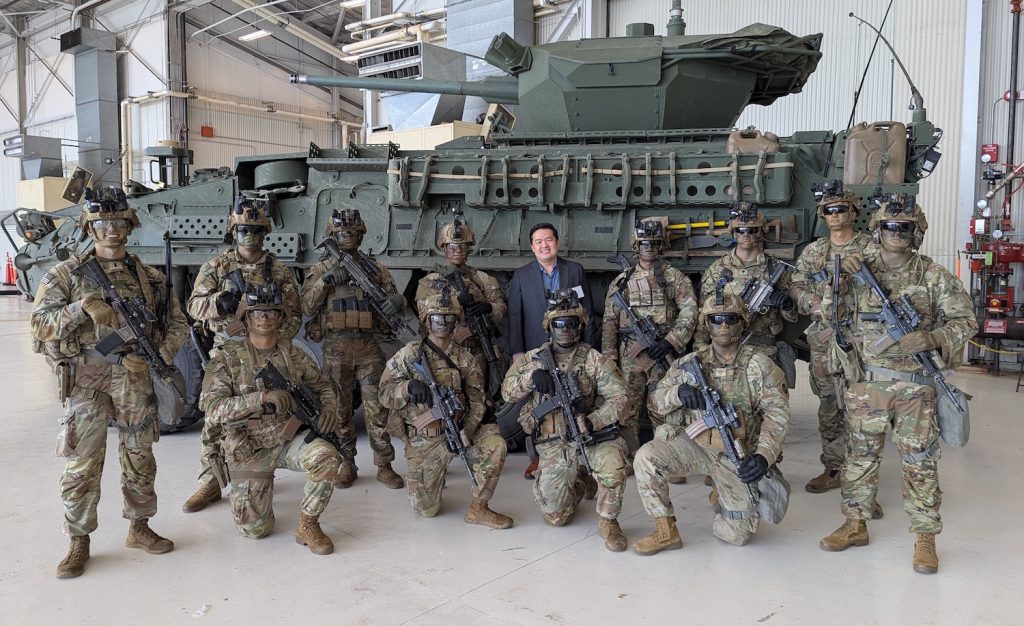From Military Service to Tech Entrepreneurship: Jonathan Pan’s Journey
Jonathan Pan’s life took a decisive turn on September 11, 2001. As a young student at New York’s Baruch College, the attacks on his home city left an indelible mark that eventually led him to military service. Though he didn’t come from a military family, Pan felt compelled to serve, completing his education before entering officer candidate school in 2005. His service as an infantry officer at Joint Base Lewis-McChord culminated in deployment to Afghanistan with the 5th Stryker Brigade Combat Team, 2nd Infantry Division, where he worked on economic development initiatives. Now, fifteen years after leaving the Army as a captain, Pan’s military experience continues to shape his career as co-founder and CEO of Exia Labs, a Seattle-area startup developing AI software to enhance military wargaming—analytical simulations used for tactical and strategic decision-making.
Pan’s journey from military service to the tech industry followed an unexpected path through gaming. “I’ve been playing games ever since I was a kid,” he reflects, describing a childhood passion for PCs and online gaming that sometimes competed with his academic responsibilities. Though gaming had been a lifelong interest, pursuing it professionally wasn’t initially part of his plan. It was during an internship at Riot Games that Pan discovered the business and craft behind game development, which “got him hooked.” This led to various gaming-related positions, including starting his own e-sports team called Ember and working at tech giants like Amazon, where he spent four years in California, followed by stints at Meta and Walmart.
The inspiration for Exia Labs came from a conversation with a former military colleague about defense technology and wargames. “It just blew my mind that the military is spending so much time and effort and money on board games to make really important decisions,” Pan recalls. This realization prompted him to return to the Seattle area in 2024 and partner with Serj Kazar, a former Riot Games colleague, to found Exia. The startup’s initial product, Blue, leverages AI agents to streamline the U.S. Army’s Military Decision Making Process (MDMP), analyzing documents and automating various steps while simulating potential mission schemes. More recently, they released Recon, a cloud-based Intelligence Preparation tool that creates decision support products and identifies tactical areas, demonstrating the company’s commitment to innovating in military planning technology.
Exia’s promising approach has already garnered recognition and financial support. In September, the company won a $50,000 prize in the Army’s xTech AI Grand Challenge, an initiative focused on formalizing AI processes that enhance military performance, reduce lifecycle costs, and scale impact across forces. Earlier in the year, Exia secured a $2.5 million seed round, providing crucial resources for continued development. Pan’s military background has not only informed his business concept but also shaped his hiring practices—he’s a strong advocate for the Defense Department’s Hero Skillbridge Program, which he utilized while at Amazon to hire nine junior officers transitioning from military service. “They’re great at problem solving,” he explains. “They just need a chance at a tech company to prove that.” This commitment to supporting veterans’ transition to tech careers reflects Pan’s understanding of how military skills can translate to business success.
Returning to work that supports military operations has reconnected Pan with a sense of purpose that resonates with his service experience. “People’s lives are on the line. That really fires me up. That motivates me,” he says, expressing the profound satisfaction he finds in developing technologies that could potentially save lives and improve military effectiveness. However, Pan is also candid about the challenges of working in the defense sector, particularly noting the military’s lengthy sales cycles and the reality that defense technology is not a path to quick profits. In retrospect, he acknowledges that starting with commercial applications before moving into defense might have been a more straightforward approach—a lesson that’s informing Exia’s current exploration of additional market opportunities.
Looking beyond military applications, Pan and his team at Exia are actively exploring how their technology could benefit other sectors. Law enforcement and natural disaster response present promising opportunities where Exia’s planning and simulation capabilities could add significant value. Pan describes drone delivery planning as “super exciting,” revealing that Exia is in preliminary discussions with major retailers like Amazon and Walmart, though formal agreements haven’t yet been established. This diversification strategy reflects both practical business sense and a recognition that the AI-powered decision-making tools developed for military wargaming have broader applications. As Exia continues to evolve, Pan’s unique combination of military experience, gaming industry expertise, and entrepreneurial vision positions the company to bridge the gap between defense innovation and commercial technology, potentially transforming how organizations approach complex planning and decision-making challenges across multiple sectors.


